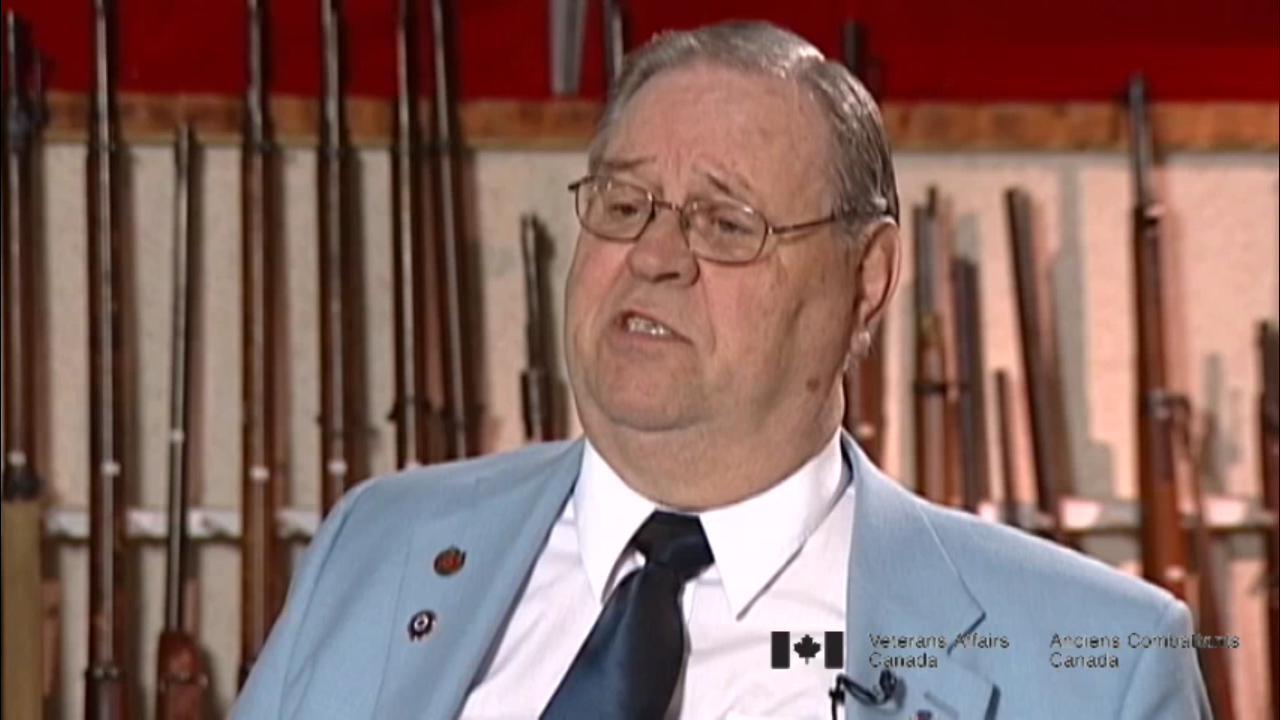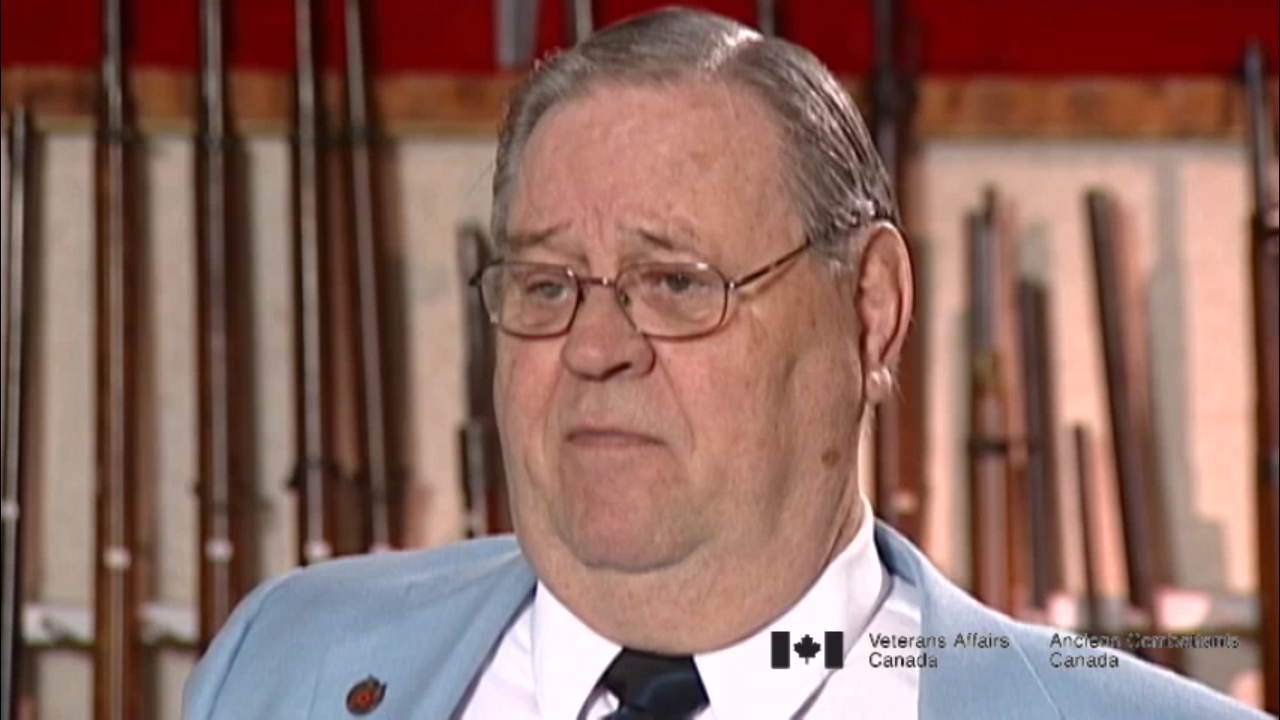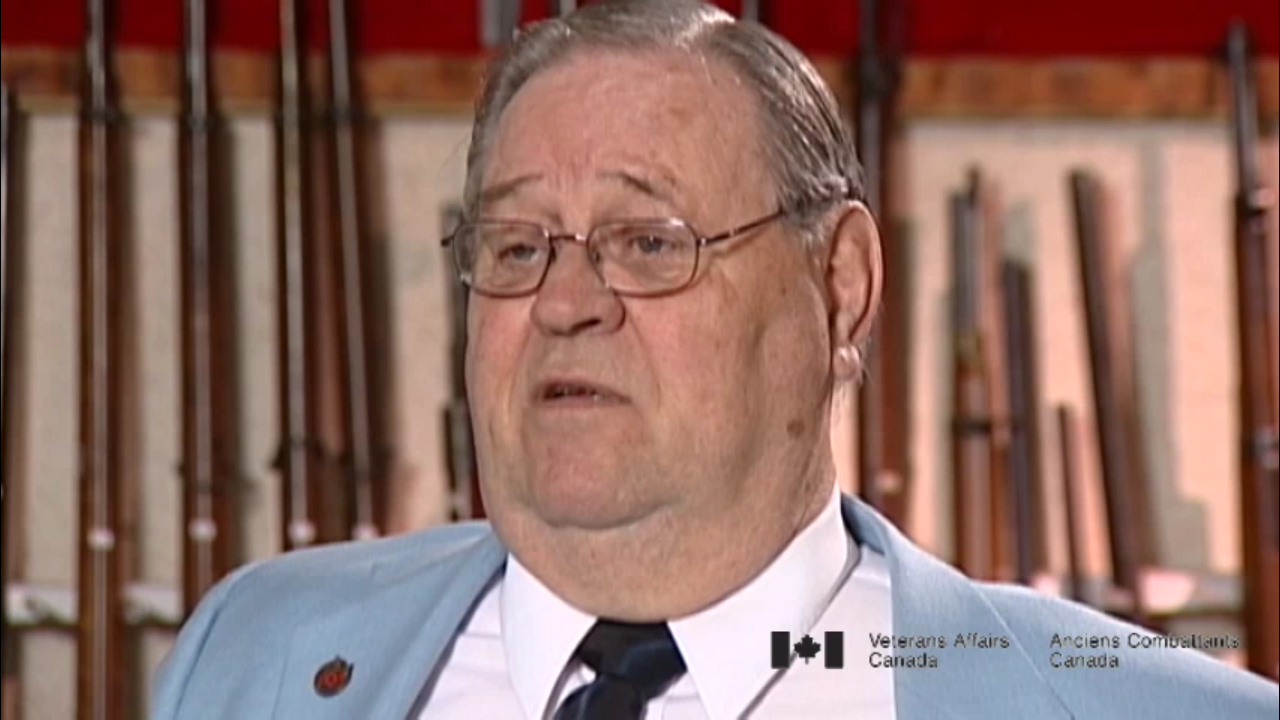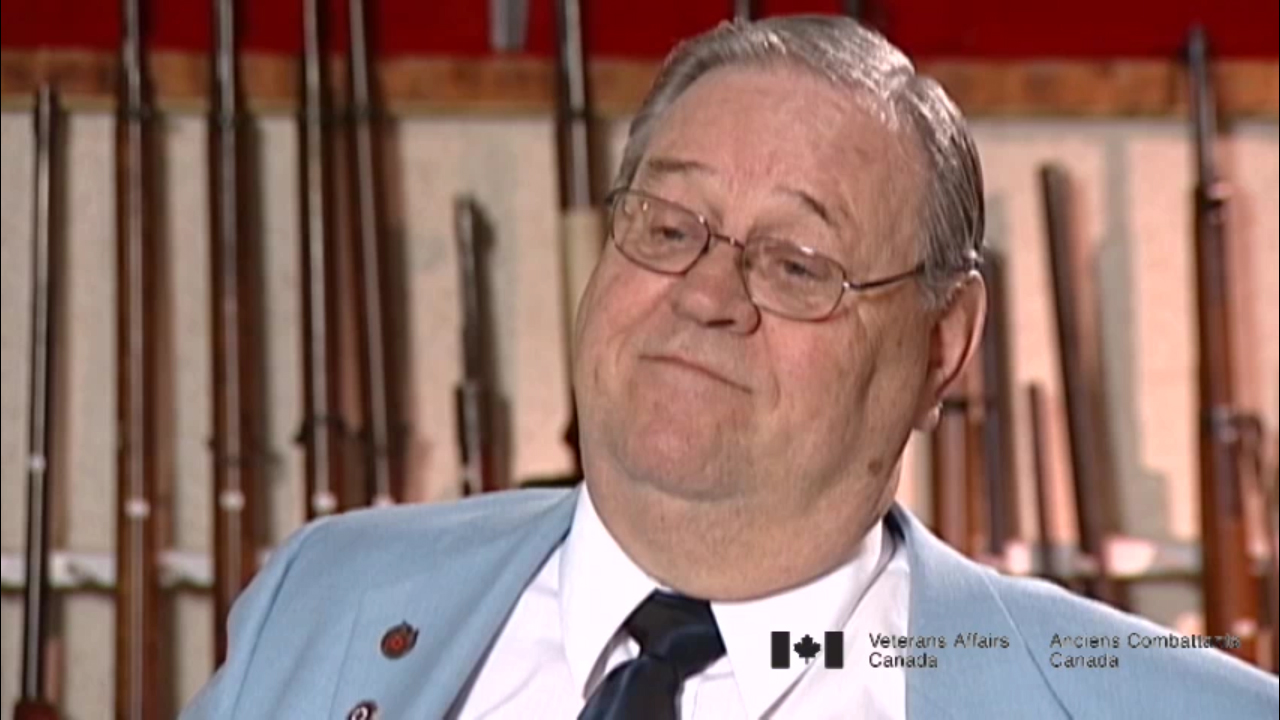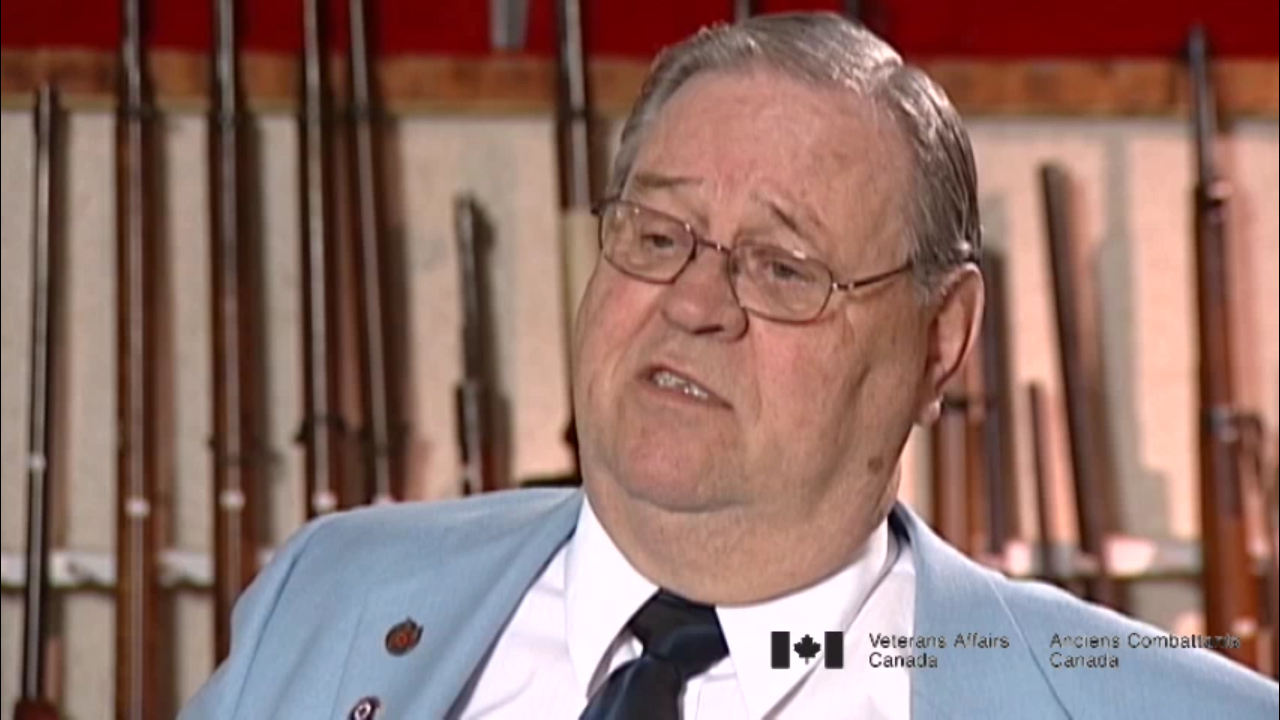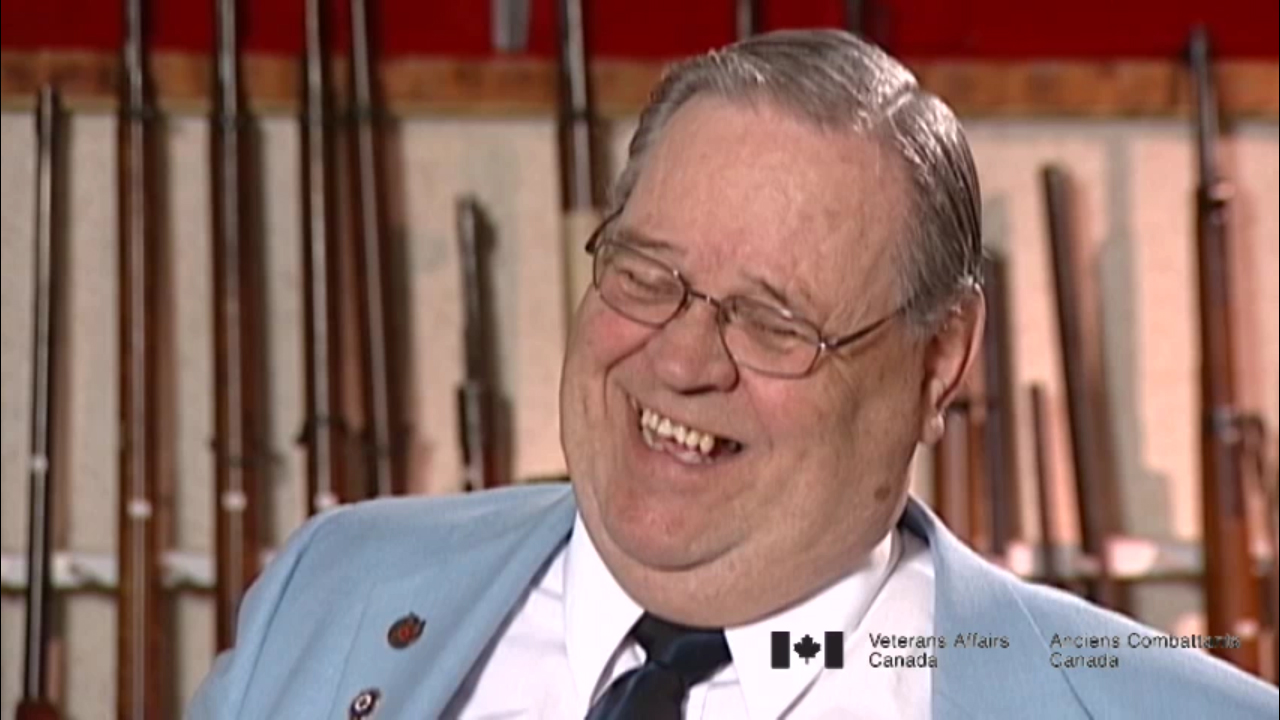Reflections on Peacekeeping
Heroes Remember
Reflections on Peacekeeping
Transcript
Description
Mr. Dubinski discusses the need for proper support and equipment for our peacekeepers. He applauds Canada’s firm but compassionate approach to intervention.
William Dubinski
William Dubinski was born in Saskatoon, Saskatchewan on August 17, 1930. As a youth, he and several friends became train hoppers, travelling from job to job by rail, often staying in “hobo jungles”. One of his stops was in Calgary and it was there that he enlisted in the Canadian Signal Corps. Mr. Dubinski became a teletype operator and later became a communications instructor with the rank of Master Warrant Officer. He served overseas in Germany and as a peacekeeper in the Congo. His Canadian service included being the computer centre senior non-commissioned officer (NCO) during the Front de libération du Québec (FLQ) crisis and Telecom manager for the 1976 Olympics in Montreal, PQ.
Meta Data
- Medium:
- Video
- Owner:
- Veterans Affairs Canada
- Duration:
- 1:37
- Person Interviewed:
- William Dubinski
- War, Conflict or Mission:
- Canadian Armed Forces
- Branch:
- Army
- Rank:
- Master Warrant Officer
- Occupation:
- Telegrapher
Related Videos
- Date modified:



